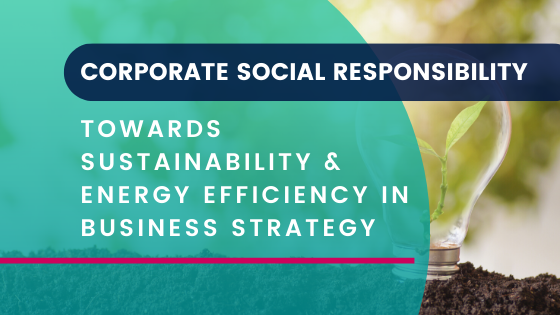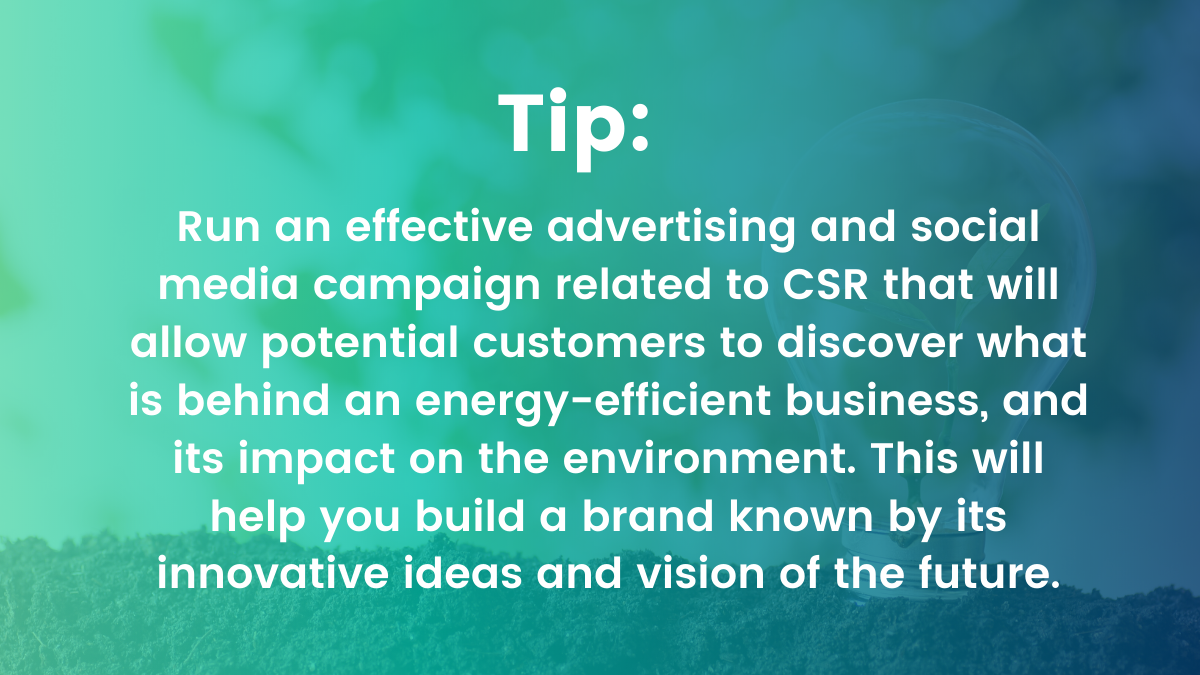When we talk about Corporate Social Responsibility in companies, do we know what that means? Is your company applying CSR? We clarify these and other doubts in this article.
Compared to more than a decade ago, the awareness of customers and consumers in regards to the negative effects certain companies, manufacturers and service providers produced on the environment and society is greater. Consequently, today’s consumers observe and evaluate what actions these companies take to prevent, reduce or reverse their negative effects.
Without generalising, the number of people that consider sustainability an important factor in deciding on a brand, manufacturer or company has increased in the last decade. As long as they received quality products or services, sustainability factors did not matter much.
Fortunately, this has changed!
Today, awareness and concern about the future of the Earth have increased considerably, and customers and consumers demand greener processes and strategies in the creation of products and services for companies and businesses.
Sustainability as a major Business Model
When it comes to business, generating greater revenue is always a priority, and this is not something to frown upon, as generally more money means better and more innovative products and services, and might even yield better prices.
However, making more money doesn’t mean doing it at any cost anymore. Right now, it’s all about making more money while at the same time reducing the impact to the environment, or, in any case, compensating the damage providing help in other areas.
This is a major shift for some companies in their business model, as they need to consider innovative solutions to improve the environmental impacts of their operations.
An important thing to take into account though is that this is not purely a matter of reputation and public image. Sustainability in business means better management of natural resources, which is a key, and better and more creative use of economic resources.
As we know, energy is expensive, along with minerals and other materials, and this is true even for those companies that have not thought to adopt sustainability. So, taking care of the environment also means managing money better, so we have a great win-win scenario.
How to shift from CSR to more Sustainable Strategies
You probably see many companies talking about their CSR. These initials stand for Corporate Social Responsibility and refer to a business model in which companies contribute and give back to society in the form of actions that help reduce the negative impact of their activity.
For your better understanding, the companies that identify themselves within the CSR framework are those that create programs, projects and activities to benefit society and/or the environment. This often involves a boost in their brands, by earning a reputation of a socially and environmentally aware business.
However, in recent years there has been a decline in the adoption of CSR.
And you might ask yourself, how is it possible if consumers now look at companies with a magnifying glass and take their social responsibility into account when choosing them?
The answer is simple. The growing availability of information and data – especially thanks to the Internet – and improvements in data collection techniques have increased companies’ transparency.
The consequence… the real results of the CSR models of the different companies have become visible, which have not been as effective as they had made it seem. This has caused an increase in scepticism from customers, who now demand more realistic ways for companies to positively influence the world.
The conclusion is that a sustainable company is sustainable from its core, that is, sustainability occurs in more than one of the processes that a company carries out to produce its products or services. In other words, sustainability cannot be false or at least not as easily.
For example, implementing an energy efficiency strategy in the production of its products and services will move the company towards a more sustainable approach. In the next section, you will understand this better.
Why Energy Efficiency should be the core of the Business
When talking about sustainability, energy efficiency is often one of the most considered aspects, as it affects our lives directly and immediately. The same happens with companies, energy consumption translates into higher or lower energy bills.
Energy efficiency doesn’t necessarily mean implementing renewable sources of energy from scratch. It’s about using just the right amount of energy to operate without any kind of issue, but without using more than what is necessary.
For the environment, the consequences of doing this are highly positive, especially as more companies adopt energy efficiency plans.
The benefits of better consumption of energy are not only limited to the environment, however. The prices of energy keep increasing, making energy efficiency a great way of saving money short and long term, even if the initial investment is high for some companies.
For companies that are just starting, implementing a scalable efficiency plan is a huge benefit in their energy consumption. This will help them save large amounts of money as the company grows, as well as build a reputation as an innovative company.
It is important to note that reducing the amount of energy used is one of the most achievable sustainability goals in the short term, as tools already exist to help us in this task. And the result of this is very rewarding, as it will contribute instantly to the environment, but also with the budget.
An example of a tool that supports the realisation and achievement of the goals in Energy Efficiency Management is the use of EMS (Energy Management Software). Among them, we can highlight as one of the market options that will offer you an all-in-one, in addition to artificial intelligence and advanced analysis, the Energy Management Platform DEXMA. We leave the link to the demo here.
Why innovative companies have Sustainability & Energy Efficiency as their flagship
Many people might share the idea that sustainability and energy efficiency shouldn’t be used as marketing strategies for businesses to boost their image as companies that are aware of the environment, but against the odds, we must say that this goes beyond.
The fact that the company has more sustainable strategies makes their clients feel better since it is a way to contribute to the reduction of the environmental impact by choosing them.
Most of the time we would indeed expect anyone to do something good selflessly because it gives that good deed the value that it comes from the heart, and not motivated by money or fame.
And how does this perceive the client?
The client perceives it as an added value to the product or service.
This strategy approach cannot only help a company preserve those customers who are concerned about the environment. Being a company with sustainability at its core is also a flag for innovative businesses, and contributes to the positive perception of a brand. That is, being efficient also sells, and this is not a bad thing whatsoever, always that your sustainability results are true.
At the end of the day, no matter if seen only from the ecological standpoint, or exclusively from the economic advantages. Adopting real sustainability plans is a way of helping, and therefore, it is a way of doing good, and this is rarely overlooked.
5 Ideas to show the CRS Policies of your company to the world
In our diversified and highly competitive economy, it has become more necessary than ever to count with ways for helping prospective customers to take the final decision of choosing us among other businesses.
For this purpose, being a transparent organisation, which is always looking for ways to continue producing high-quality products and services while consuming less energy and materials, is the key to increasing our reputation. In this way, your company will generate a positive impact on society and the environment, which will help you enjoy the benefits of being a company known for its social policies and honesty.
And how can you show and be transparent when it comes to energy efficiency and environmental value?
We give you 5 ideas to show the social involvement of your company to the world:
Create a page on your website showing the different CSR actions carried out by the company. For example, aid given or received to reduce the environmental impact, activities to support disadvantaged social groups, energy efficiency improvements carried out in the production chain, …
Obtain standard that certifies the energy efficiency level of your company. Among them and better known, ISO 50001, which certifies the implementation of an energy management system in the company.
Show how energy efficient your company’s buildings are. Some examples of the Green Building Certification you can obtain are BREEAM, LEED, WELL and Passivhaus
Enter Sustainability Rankings such as the Dow Jones Sustainability Index (DJSI) and attract investors with a sustainable profile.
Use energy-efficient technologies such as EMS. These specific energy management software will help you perform advanced analysis of your energy management plan, create customised reports, track savings, measure your carbon footprint and much more. An example of an integrated Advanced Energy Management Platform is DEXMA Platform, where not only can you do all of the above, but it also has +25 Apps that specialise in efficient energy management.
If you liked what you read, subscribe to our blog to receive the latest posts and downloadable materials.
And if you’d like to try the DEXMA advanced energy management platform, you can request your demo here.





